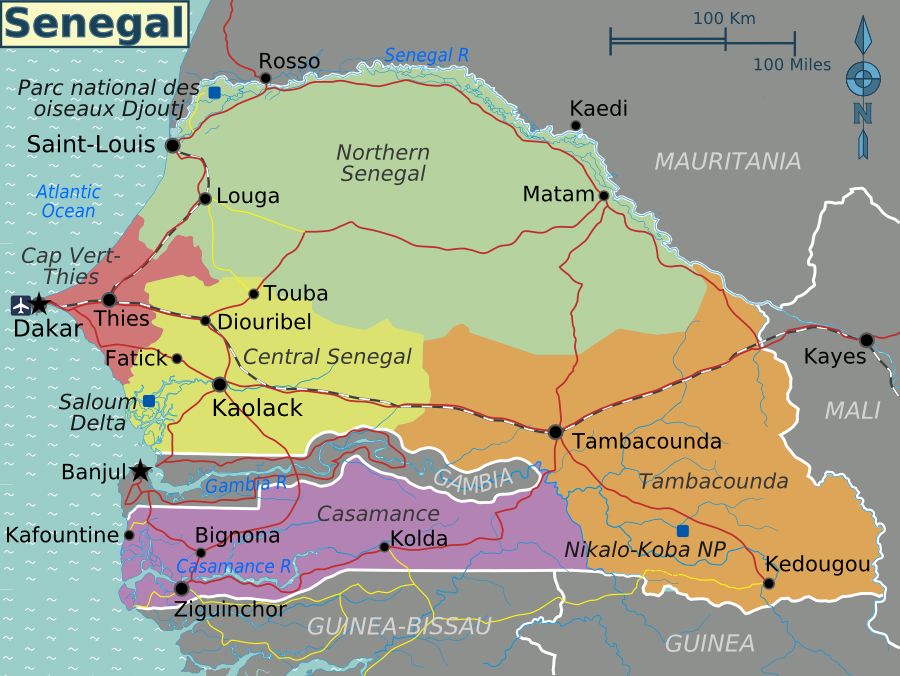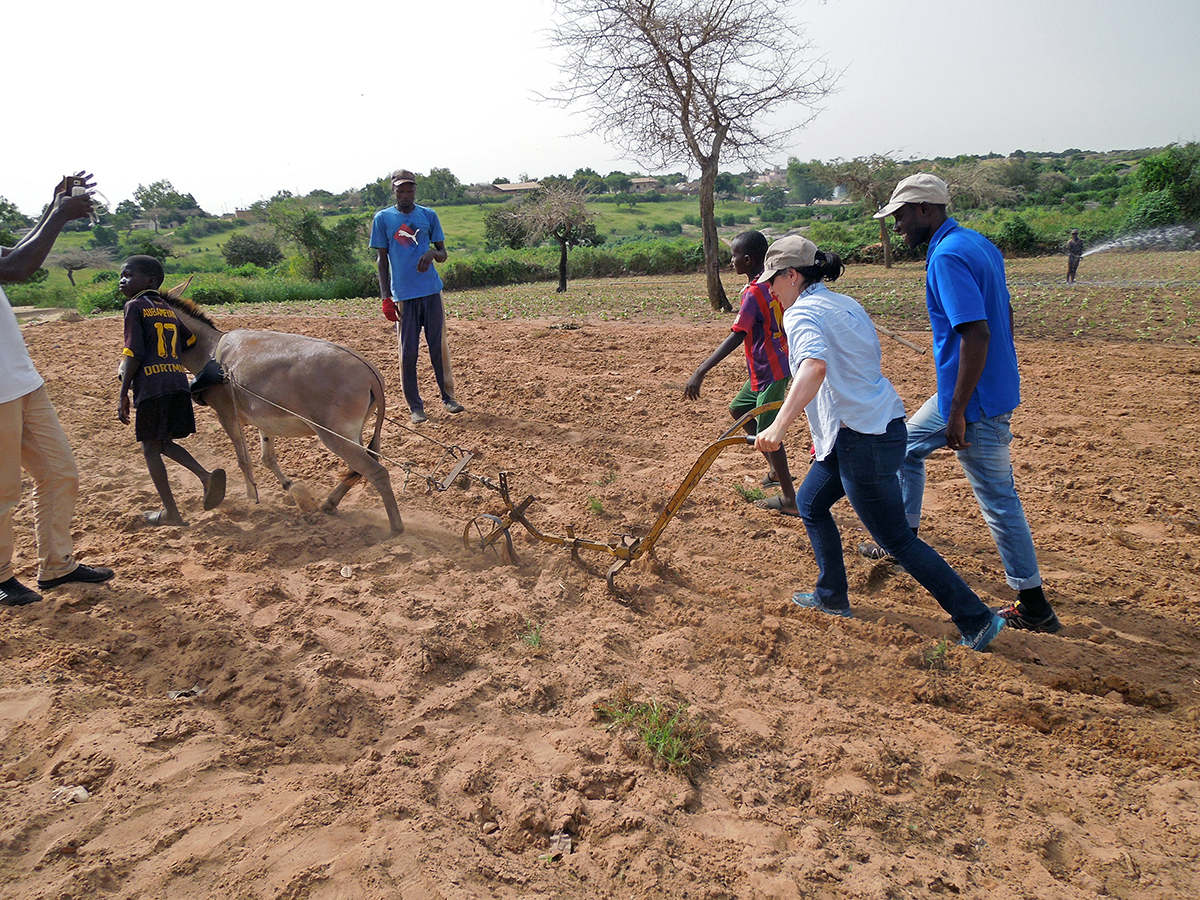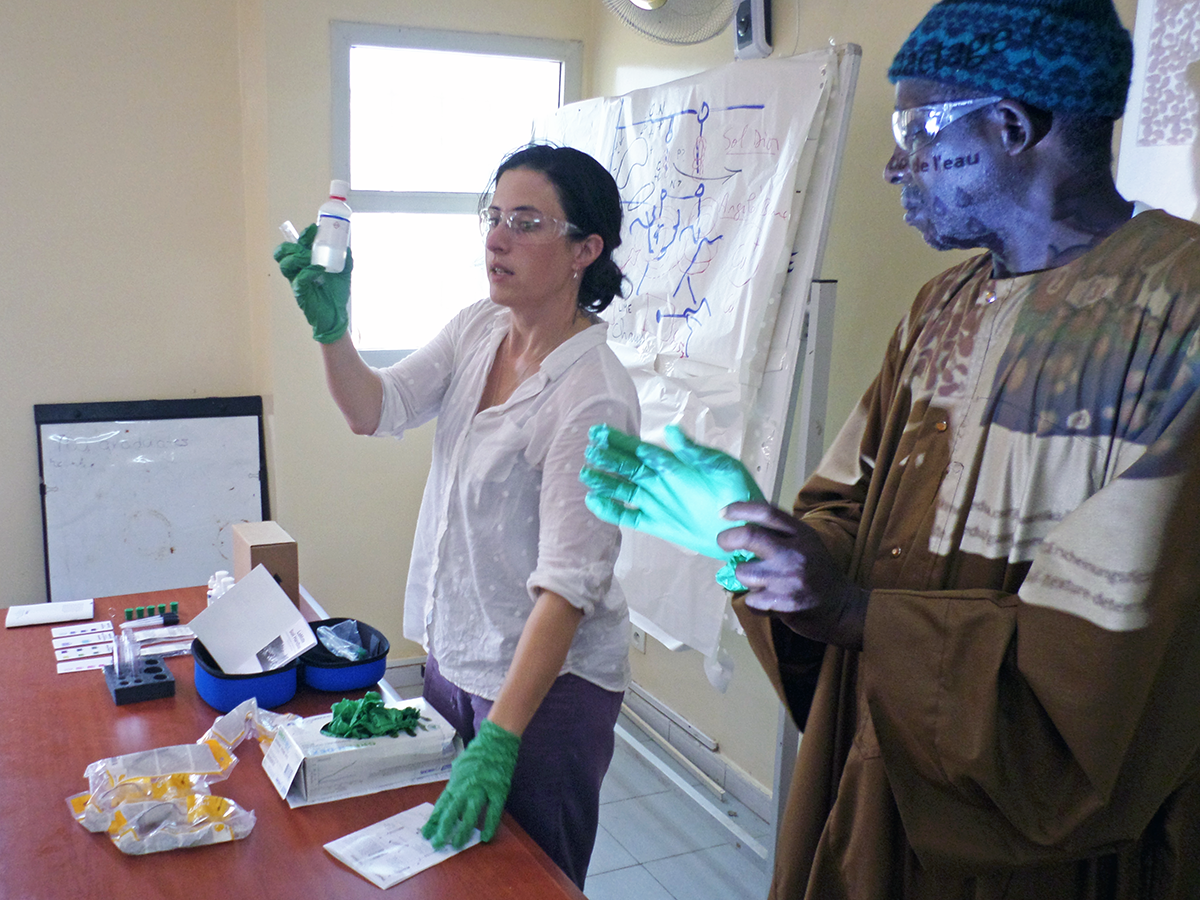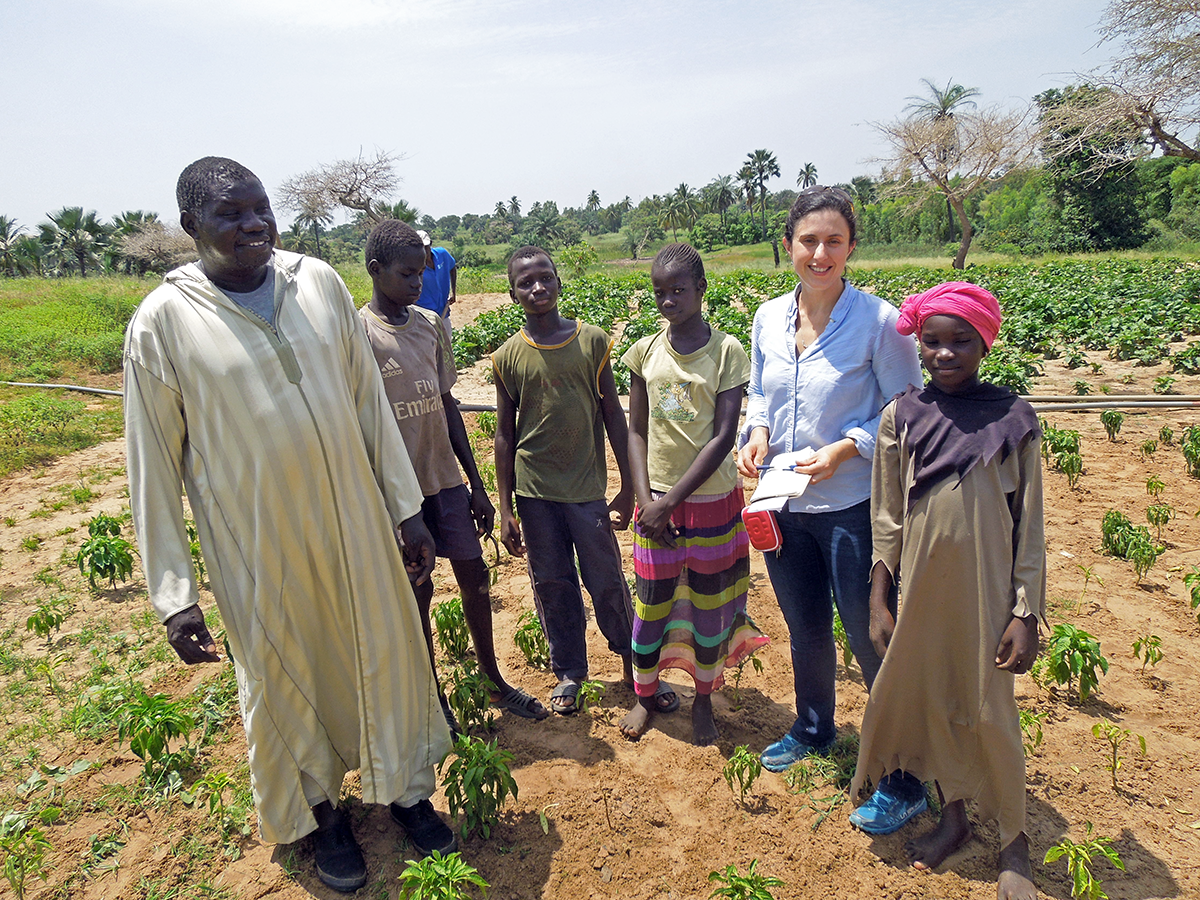Rachel Schattman, USDA Northeast Climate Hub Research Fellow, recently returned from Senegal where she provided soil health training to vegetable farmers, and learned about Senegal’s tradition of teranga, or hospitality.
The Theis region of Senegal spans the coastal area between the national capital of Dakar and the colonial city of Saint Louis. In this region, several thousand vegetable farmers grow a diverse range of crops: peanuts, cabbage, eggplant, tomatoes, cassava, and much more. While much of Senegal is tropical, Theis is located in the semi-arid region known as the Sahel. It is situated in the northern part of the country, between the Sahara and the Sudanian Savanna. Agriculture in this area depends on seasonal rains, which typically fall between June and October. According to USAID, rainfall will likely decrease in Senegal because of climate change, with some models forecasting a 38% decrease by the end of the 21st century. Rainfall reductions of this magnitude will undoubtedly have an impact on Senegalese people as 70% of the population work in the agriculture sector, and food insecurity worsens in years with poor agricultural yields. The World Food Programme notes that 17% of the Senegal population is food insecure, and rural populations in the country struggle with chronic and acute malnutrition.
Many farms in Theis belong to cooperatives, which are often federated under a single entity. The Coastline Vegetable Producers Union (UML) of Mboro is one such federated cooperative. UML leadership works diligently to promote the interests of its members. For example, in recent years, they have attracted international funding for an onion drying facility, which allowed for some members to export onions for the first time. Since 2015, they have partnered with Winrock International to bring experts to Mboro to train coop members on agro-ecological practices. I was invited to help train farmers on ecological soil management and soil health. Together, such practices can potentially help them offset the negative impacts of climate change in their region over the years to come.

Looking, listening, learning
“I accepted the assignment because I was eager to learn how farmers in other parts of the world ran their businesses under different climate and soil conditions.”
As the third volunteer brought in by Winrock to work with UML farmers, I began my journey in mid-September last year with a meeting between Winrock field staff and the President of UML, and two days of field visits. At the UML headquarters in Mboro, we spoke further on my assignment, and discussed some of the common practices that I would likely see on our field visits of UML member farms. Out in the field, the farmers we met were excited to share their practices and stories with us. Some showed us compost they had made following a previous Winrock training, and were eager to discuss their application practices and the many challenges they faced. Others showed us their fields that were planted (with cabbage and green onion), as well as fields undergoing secondary cultivation prior to planting and their nursery plots. One of our hosts was even kind enough to give me a chance to try my hand at tilling with a donkey, which was a first for me.

Rachel Schattman learns to plow using animal power in Thies, Senegal in September 2017.
In our field visits, we observed things that were going well for farmers, as well as challenges that farmers experienced. For instance, there were irrigation pumps in various states of operation and repair. Some farms were contaminated by salt, which severely limited the production potential of their land. Efforts to desalinate vegetable cropping land often included the removal of contaminated topsoil. Farmers would then cover the area with new topsoil. Although this effort can be expensive, it’s often a necessary step given the lack of access to soil amendments such as gypsum. Farmers also practiced intercropping to spread farm income over the growing season. Several plots that we visited were on significant slopes (estimated 5-7%) with soil erosion problems related to rainfall and irrigation. To slow erosion, some farmers used hand-dug trenches to redirect water flow. After these first two days, it was clear that these farmers were driven by a desire to improve their farming practices and experiment with new growing techniques. Based on these farm visits and the UML leadership’s training request, Winrock field staff and I worked together to develop and translate a five-day training course on soil health and nutrient management.
A workshop on agroecological principles and practices for farmers
When the training course came to fruition, about 30 UML members attended. Held in Mboro’s town hall, we started the week by covering the five principles of ecological agriculture; (1) recycling biomass, (2) managing organic matter, (3) keeping nutrients in place, (4) diversification, and (5) synergy.[1] Each principle was paired with examples of on-farm management approaches. In response to questions that farmers posed, we also discussed the specific nutrient needs of crops. We covered how to calculate the nutrient amounts in purchased fertilizer and compared the nutrient amounts contained in a variety of fertilizers (including compost). For practice, the farmers calculated nitrogen (N), potassium (P), and phosphorus (K) concentrations in fertilizer mixes based on weight of the bag and percentage content in the fertilizer mix. By the middle of the week we had covered the strengths and weaknesses of different soil types, soil compaction and its effects on yield and plant health, and soil tests. In anticipation of these topics, I had packed a LaMotte home soil test kit and refill pack (good for 160 N, P, K, and pH tests) to use as a demonstration and leave with UML. We took three soil samples (brought in by farmers), and workshop volunteers conducted tests of the three different soils. In the final workshop lecture, I showed how the coast of Senegal around Theis is already impaired by nitrogen and phosphorus runoff. Together we discussed mobile versus immobile phosphorus, eutrophication and hypoxia, and the importance of not over-applying fertilizers for the protection of coastal areas.

Rachel Schattman demonstrates how to use a home soil test kit with farmers from the UML Cooperative.
My experience in Senegal did not disappoint
It is my hope that the workshop provided useful and usable information to the UML farmers in and around Mboro. As a volunteer, the experience of working with UML and Winrock was extremely valuable as it allowed me to work with growers in a completely different economic, ecological, and social context. My assignment forced me to return to the basic principles of agroecological agriculture, and apply it in a very different soil and climatic setting. It was a challenging and exciting exercise. I was also impressed and humbled by the UML farmers. There were several farmers who were willing to try new practices, even in the face of prevailing social pressure to maintain the status quo. The excitement and enthusiasm of the UML farmers was very contagious.
On this assignment, I was very lucky to work with a skilled professional, Saliou Ndiaye. He not only provided language translation, but also helped me understand the social norms and expectations of the farmers and their communities. An agricultural professional himself, Saliou was able to help me distill key topics (such as soil pH, cation exchange capacity) into terms farmers understood easily. Beyond the trainings, my time with Saliou and other members of the Winrock team helped me develop a deep appreciation of Senegalese culture, embodied in their teranga (hospitality).

Rachel Schattman and Farmer Galaye Samb with helpers on his farm in Theis, Senegal.
Dr. Rachel E. Schattman volunteered with Winrock International in Senegal in September of 2017 for 2 weeks. She has been working in agriculture, either as a farm worker, farm owner, or Extension specialist for 19 years. Primarily, her focus is on vegetables and other specialty crops, but she also has experience with cow and goat dairies and value-added processing. Rachel is currently a Research Specialist with the University of Vermont Extension Vegetable and Berry Program, and a Research Fellow with the USDA Northeast Climate Hub.
[1] Agroecology: Concepts, Principles, and Applications. Sociedad Cientifica LatinoAmericana de Agroecologia (SOCLA) https://www.socla.co/wp-content/uploads/2014/socla-contribution-to-FAO.pdf

